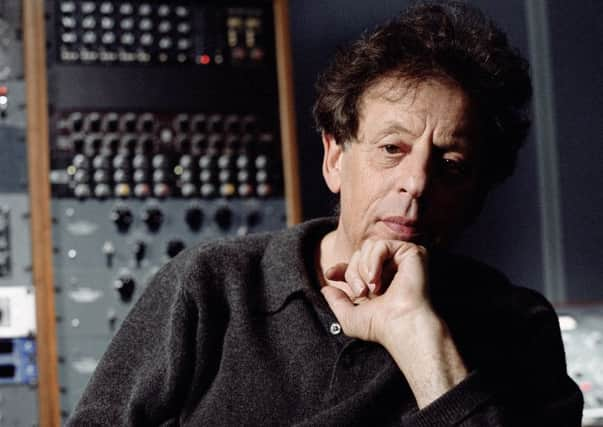Interview: Philip Glass on Scottish Opera's new production of The Trial


They might be surprised, though, by The Trial, and by the sheer diversity of music and styles that Glass explores in this new opera – all of which make that “minimalist” tag, which Glass has always hated, even less relevant. Remarkably, The Trial is Glass’s 26th opera, unveiled to broad approval in London a couple of years back, and now getting its premiere north of the border from Scottish Opera, who co-commissioned it.
Where did Glass’s surprisingly eclectic approach come from? “I gave myself permission to do that,” says the composer. “This particular opera does have a sound – it doesn’t have anything in common with my early operas Einstein on the Beach or Satyagraha, for example, and nor should it. I’ve done quite a few operas that are really very different from each other now.”
Advertisement
Hide AdAdvertisement
Hide AdAnd the sound world that Glass conjures – bringing together the acid sarcasm of Kurt Weill’s Weimar cabaret, a bit of jazz, a touch of klezmer, and a few of his distinctive repetitions, of course – serves as a brilliantly appropriate backdrop for the opera’s dark tale by Franz Kafka. In it, Josef K (a stand-in for Kafka himself, we presume) wakes one morning to discover he’s under arrest for an undisclosed crime, then finds himself sucked ever deeper into the bureaucratic machinations of an arcane legal system that seems reluctant to divulge what he’s done wrong, let alone what his punishment will be.
“You might call it a black comedy,” says Glass, “and there’s a lot to be said for that.” Certainly Glass and his librettist Christopher Hampton – a respected playwright and director, best known for his Oscar-winning script to Dangerous Liaisons – stress the dark humour in their fast-moving creation. It’s full of gags, but undercut by a serious sense of threat and danger, too. “Christopher and I have worked together a number of times,” continues Glass – this is in fact their third opera together. “He’s very experienced at writing for singers.”
Anyone more familiar with the opulent expansiveness of some of Glass’s earlier work – not least the five-hour indulgence of his first opera, Einstein on the Beach – might also be surprised by how focused, punchy and small-scale The Trial is. Glass has spoken about his chamber operas being like “neutron bombs – small, but packing a terrific punch,” and that’s certainly the case here. “It’s very good training for a composer to write chamber operas,” Glass asserts – although you might wonder at how much more training the 80-year-old opera veteran needs. “In fact for most opera composers, that’s how they begin, because you’re simply not given a big production when you start out. Well, that’s not strictly true – I had a very big one as my first opera!” And he lines up The Trial’s relatively small scale with its humour, too: “In a comic piece like this, apart from our main character, everyone has to play at least two or three parts – but it’s part of the fun when you dress them up differently and send them back out on the stage again.”
This isn’t the first time Glass has tackled Kafka. “I’ve known his work since my teens,” Glass says, “and my first Kafka opera was In the Penal Colony, back in 2000.” It may not be the last, either. “You know, I have a penchant for trilogies. I’ve been wanting to do a third Kafka opera – he has a bunch of fragments called America, but I’m not sure there’s enough there to put it on stage.”
We’ll have to wait and see whether the third part of Glass’s Kafka opera trilogy ever materialises. But the second installment, at least, is trenchant, very funny and strangely moving, too. ■
*Scottish Opera perform Philip Glass’s The Trial at the Theatre Royal, Glasgow, 24, 26 and 28 January and at the King’s Theatre, Edinburgh, 3 and 4 February, www.scottishopera.org.uk